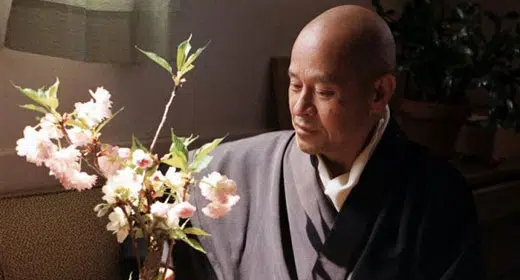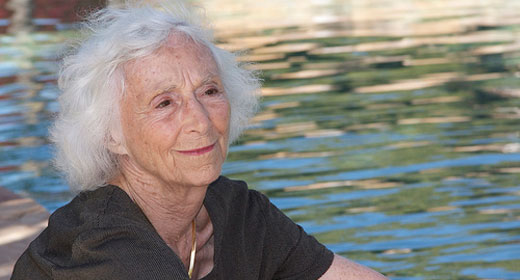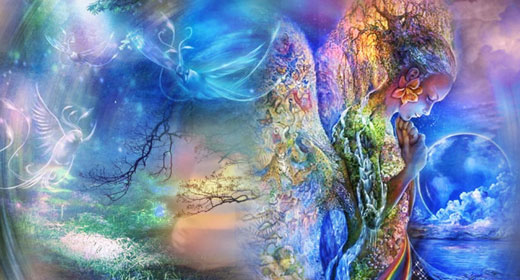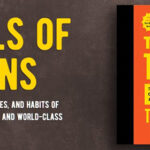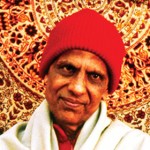Most of us are accustomed to looking outside of ourselves for fulfillment.
 We are living in a world that conditions us to believe that outer attainments can give us what we want. Yet again and again our experiences show us that nothing external can completely fulfill the deep longing within for “something more.” Most of the time, however, we find ourselves striving toward that which always seems to lie just beyond our reach. We are caught up in doing rather than being, in action rather than awareness. It is hard for us to picture a state of complete calmness and repose in which thoughts and feelings cease to dance in perpetual motion. Yet it is through such a state of quietude that we can touch a level of joy and understanding impossible to achieve otherwise.
We are living in a world that conditions us to believe that outer attainments can give us what we want. Yet again and again our experiences show us that nothing external can completely fulfill the deep longing within for “something more.” Most of the time, however, we find ourselves striving toward that which always seems to lie just beyond our reach. We are caught up in doing rather than being, in action rather than awareness. It is hard for us to picture a state of complete calmness and repose in which thoughts and feelings cease to dance in perpetual motion. Yet it is through such a state of quietude that we can touch a level of joy and understanding impossible to achieve otherwise.
It is said in the Bible: “Be still and know that I am God.” In these few words lies the key to the science of Yoga. This ancient spiritual science offers a direct means of stilling the natural turbulence of thoughts and restlessness of body that prevent us from knowing what we really are.
Ordinarily our awareness and energies are directed outward, to the things of this world, which we perceive through the limited instruments of our five senses. Because human reason has to rely upon the partial and often deceptive data supplied by the physical senses, we must learn to tap deeper and more subtle levels of awareness if we would solve the enigmas of life — Who am I? Why am I here? How do I realize Truth?
Yoga is a simple process of reversing the ordinary outward flow of energy and consciousness so that the mind becomes a dynamic center of direct perception no longer dependent upon the fallible senses but capable of actually experiencing Truth.
By practicing the step-by-step methods of Yoga taking nothing for granted on emotional grounds or through blind faith we come to know our oneness with the Infinite Intelligence, Power, and Joy which gives life to all and which is the essence of our own Self.
In past centuries many of the higher techniques of Yoga were little understood or practiced, owing to mankind’s limited knowledge of the forces that run the universe. But today scientific investigation is rapidly changing the way we view ourselves and the world. The traditional materialistic conception of life has vanished with the discovery that matter and energy are essentially one: every existing substance can be reduced to a pattern or form of energy, which interacts and interconnects with other forms. Some of today’s most celebrated physicists go a step further, identifying consciousness as the fundamental ground of all being. Thus modern science is confirming the ancient principles of Yoga, which proclaim that unity pervades the universe.
The word yoga itself means “union”: of the individual consciousness or soul with the Universal Consciousness or Spirit. Though many people think of yoga only as physical exercises — the asanas or postures that have gained widespread popularity in recent decades — these are actually only the most superficial aspect of this profound science of unfolding the infinite potentials of the human mind and soul.
There are various paths of Yoga that lead toward this goal, each one a specialized branch of one comprehensive system:
Hatha Yoga — a system of physical postures, or asanas, whose higher purpose is to purify the body, giving one awareness and control over its internal states and rendering it fit for meditation.
Karma Yoga — selfless service to others as part of one’s larger Self, without attachment to the results; and the performance of all actions with the consciousness of God as the Doer.
Mantra Yoga — centering the consciousness within through japa, or the repetition of certain universal root-word sounds representing a particular aspect of Spirit.
Bhakti Yoga — all-surrendering devotion through which one strives to see and love the divinity in every creature and in everything, thus maintaining an unceasing worship.
Jnana (Gyana) Yoga — the path of wisdom, which emphasizes the application of discriminative intelligence to achieve spiritual liberation.
Raja Yoga — the royal or highest path of Yoga, immortalized by Bhagavan Krishna in the Bhagavad Gita and formally systematized in the second century B.C. by the Indian sage Patanjali, which combines the essence of all the other paths.
At the heart of the Raja Yoga system, balancing and unifying these various approaches, is the practice of definite, scientific methods of meditation that enable one to perceive, from the very beginning of one’s efforts, glimpses of the ultimate goal — conscious union with the inexhaustibly blissful Spirit.
The quickest and most effective approach to the goal of Yoga employs those methods of meditation that deal directly with energy and consciousness. It is this direct approach that characterizes Kriya Yoga, the particular form of Raja Yoga meditation taught by Paramahansa Yogananda.


